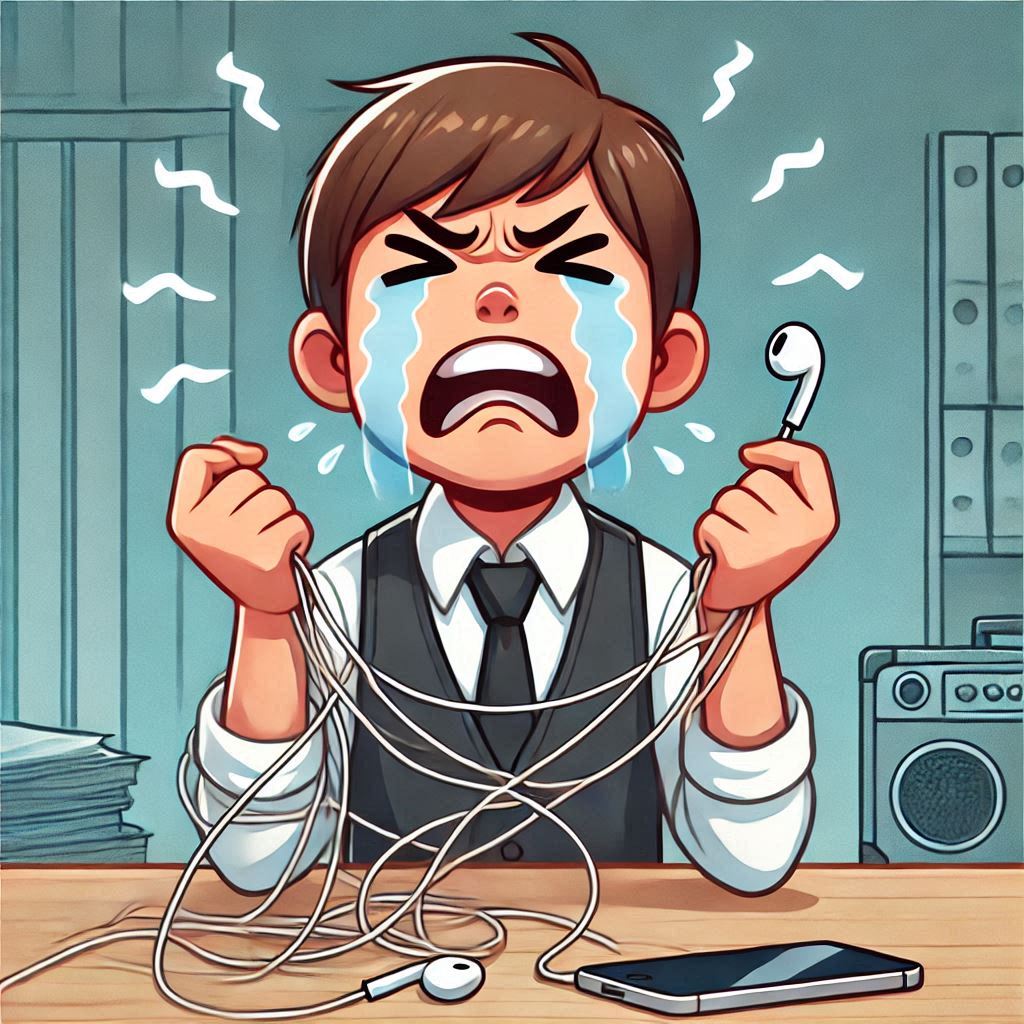
Introduction
Why is it that sometimes the worst situations lead to faster recovery than mildly uncomfortable ones? Imagine this: you’re stuck in a job that’s mildly frustrating—long hours, low pay, but just tolerable enough to stay. You convince yourself to endure it for years. Now compare this to being in a toxic work environment where the stress becomes unbearable. Instead of enduring, you quit, take a leap of faith, and end up finding a much better opportunity.
This counterintuitive phenomenon is known as the Region Beta Paradox. It describes how we often recover faster from more intense discomfort than we do from situations that are just “okay.” The key lies in how different levels of discomfort trigger our willingness—or lack thereof—to take action.
Think about it: when things are mildly unpleasant, we tend to adapt and tolerate them. But when discomfort crosses a certain threshold, it sparks change, pushing us to take decisive action that leads to better outcomes.
Understanding the Region Beta Paradox can reshape how you view challenges. It teaches us to question complacency and recognize when “good enough” is actually holding us back. So, how can you harness this paradox to create positive change in your life? Let’s dive deeper.

What is the Region Beta Paradox?
The Region Beta Paradox is a fascinating psychological concept that challenges how we think about discomfort and recovery. Simply put, it refers to situations where people recover faster from worse experiences than from mildly uncomfortable ones. This happens because severe discomfort triggers action, pushing us to seek solutions, while mild discomfort fosters complacency, making us endure the situation for longer.
Here’s an example to illustrate: Imagine you need to travel a short distance, say 1-2 kilometers. You might choose to walk at a leisurely pace, which takes time and effort. Now imagine the distance is longer—10 kilometers. Instead of walking, you’d likely hop in a car or take public transport, getting to your destination faster despite the greater initial challenge. This is the paradox in action: the greater inconvenience (longer distance) leads to faster resolution (quicker transportation).
This concept applies to many areas of life. Mildly unhappy relationships linger because they’re “not bad enough” to end, while toxic ones often result in swift breakups and quicker personal growth. A slightly annoying job may keep you stuck for years, while a truly unbearable one may push you to quit and pursue something better.
The Region Beta Paradox highlights how mild discomfort can be a trap. By tolerating what’s “good enough,” we may unknowingly prolong our struggles and delay positive change.

Mechanism Behind the Paradox
To understand the Region Beta Paradox, it helps to visualize two “regions” of discomfort:
- Region Alpha: This is the zone of mild discomfort. Here, the inconvenience or pain is noticeable but not intolerable. It’s like an itch you choose to ignore—it’s annoying, but not enough to compel you to act. Instead, you adapt, endure, and carry on.
- Region Beta: This is the zone of severe discomfort, where the pain or inconvenience crosses a threshold and becomes unbearable. In this region, adaptation is no longer an option. Instead, the discomfort forces you to take decisive action to escape or resolve the situation.
Think of boiling water. If you place a pot on a low flame, the water will take forever to reach a boil, but crank up the heat, and it will bubble up quickly. The same principle applies to human behavior: mild discomfort (Region Alpha) keeps us in a slow, passive state, while severe discomfort (Region Beta) accelerates our response, often leading to faster resolution and recovery.
For instance, if your job is mildly dissatisfying, you might rationalize staying, thinking, “It’s not great, but it pays the bills.” On the other hand, if your job becomes toxic—with unbearable stress or a hostile work environment—you’re far more likely to quit and seek something better.
The paradox lies in this mechanism: we tolerate the tolerable and change the intolerable, even though action in both cases could improve our lives. Recognizing which “region” we’re in can help us break free from complacency and embrace change.
Real-Life Examples
The Region Beta Paradox shows up in everyday life more often than we realize. Let’s look at some relatable scenarios where the paradox unfolds:
1. Walking vs. Driving
Imagine you need to travel 2 kilometers. It’s mildly inconvenient, so you decide to walk. You stroll at a slow pace, and the journey takes a while. Now consider traveling 10 kilometers. The inconvenience is greater, so you’re likely to take a car or public transport, completing the journey much faster.
Here, the paradox plays out: the greater challenge (longer distance) triggers a more efficient solution (driving), while the smaller challenge (short distance) leaves you stuck with the slower option (walking).
2. Job Dissatisfaction
Many people stay in jobs that are tolerable but uninspiring. It’s not great, but it’s “good enough,” so they endure it for years. In contrast, a toxic workplace—one filled with unbearable stress or hostile coworkers—often pushes people to quit. This bold action frequently leads to better opportunities and faster personal growth.
Ironically, the worse situation (toxic job) creates positive change sooner than the mildly bad one (uninspiring job).
3. Breakups
Mildly unhappy relationships often linger for years because they’re “not bad enough” to end. Couples tolerate the dissatisfaction and settle into complacency. On the other hand, toxic relationships, marked by frequent conflict or emotional abuse, typically lead to quicker breakups.
Despite the pain, people in toxic relationships often recover and grow faster than those stuck in lukewarm partnerships.
4. Health
A mild headache might go untreated for days because it’s easy to ignore or manage with over-the-counter remedies. But severe migraines are intolerable, forcing a visit to the doctor or a lifestyle change to address the root cause.
The paradox shows how mild issues can drag on, while severe problems often lead to quicker solutions and recovery.
These examples reveal the importance of recognizing when mild discomfort is holding us back. By identifying the situations we tolerate, we can take deliberate action to create positive change—without waiting for things to get worse.

Research and Evidence
The Region Beta Paradox isn’t just a theoretical concept—it’s supported by research. A pivotal 2004 study by Daniel Gilbert et al. explored how people respond to varying levels of discomfort and stress. The researchers found that severe stress often activates problem-solving mechanisms, prompting individuals to take swift action. On the other hand, mild stress tends to linger because it doesn’t cross the threshold needed to inspire change.
For instance, when participants faced intense stress—such as significant personal loss or a major setback—they were more likely to engage in proactive behaviors to overcome the issue. By contrast, when dealing with mild stressors, individuals showed greater complacency, often delaying or avoiding any action.
This paradox also plays out in health-related research. Studies show that people recovering from major illnesses, like heart attacks or surgeries, often adopt healthier lifestyles (e.g., exercising, eating better) to prevent recurrence. In comparison, those dealing with mild but persistent health conditions, like minor back pain or mild fatigue, often ignore the issue or adapt to it, allowing it to linger for years without seeking proper treatment.
Real-world examples confirm these findings. A 2011 survey on job satisfaction revealed that individuals in highly toxic workplaces tend to leave and find better roles faster, while those in mildly dissatisfying jobs stay longer due to inertia.
This body of evidence supports the core idea of the Region Beta Paradox: severe challenges spark action and recovery, while mild discomfort fosters stagnation. Recognizing this dynamic can help us reframe how we approach life’s struggles, motivating us to act before discomfort worsens.
Why It Happens: Psychological Insights
The Region Beta Paradox stems from how our brains respond to discomfort. When faced with severe discomfort, our natural coping mechanisms kick in. These mechanisms, rooted in our survival instincts, push us to take decisive action to escape or resolve the situation. For example, unbearable stress triggers problem-solving, motivating us to change jobs, end toxic relationships, or seek medical help.
In contrast, mild discomfort breeds complacency. Our brains tend to overestimate our ability to endure these situations. Since the discomfort isn’t overwhelming, we adapt and rationalize staying put, thinking, “It’s not so bad.” This leads to inertia—a state where we tolerate mediocrity instead of seeking better alternatives.
This complacency is reinforced by cognitive biases, such as loss aversion. We fear the risks associated with change, like leaving a stable job or ending a long-term relationship, even when the change could lead to better outcomes. The comfort of familiarity often outweighs the potential benefits of improvement.
In short, severe discomfort forces action, while mild discomfort traps us in a cycle of endurance and inaction. By recognizing this pattern, we can challenge our biases and take proactive steps before mild discomfort becomes a long-term problem.
Lessons and Applications
The Region Beta Paradox teaches us an important life lesson: don’t settle for mediocrity. Mild discomfort, while tolerable, can keep us stuck for years in unfulfilling situations. Recognizing and addressing these situations early can help us create positive change without waiting for things to worsen.
1. Recognize Mild Discomfort
Take a closer look at areas of your life where you feel “just okay.” Is it your job, a relationship, or a health habit? Acknowledge where you might be settling for less than you deserve.
2. Seek Change Earlier
Don’t wait for discomfort to escalate. Treat mild dissatisfaction as a red flag, even if it feels manageable. Proactively exploring alternatives—whether that means updating your resume, having tough conversations, or seeking professional advice—can lead to breakthroughs before the situation becomes unbearable.
3. Use the Paradox to Your Advantage
If you’re in a mildly dissatisfying situation, mentally reframe it as severe to trigger action. For example, imagine you’re stuck in a job that pays well but leaves you unfulfilled. Ask yourself: What if this dissatisfaction grows over the next five years? What opportunities am I missing by staying? This mental shift can motivate you to act.
Personal Scenario:
Imagine you’re mildly unhappy in your job. You decide to act as though it’s a toxic situation, taking steps like updating your skills, networking, and applying for better roles. Within months, you land a new job that aligns with your passions. By treating mild discomfort as urgent, you’ve unlocked growth and satisfaction much sooner than you otherwise would have.
Takeaway: The key to overcoming the Region Beta Paradox is awareness and action. When you stop tolerating the tolerable, you can take control of your life and achieve meaningful progress.

Conclusion
The Region Beta Paradox offers a counterintuitive yet empowering insight: worse situations often lead to better outcomes because they force us to act, while mild discomfort keeps us stuck in a cycle of inaction.
Think about your own life. Are there areas where you’re tolerating mediocrity—whether it’s an uninspiring job, a stagnant relationship, or an unaddressed health issue? These “Region Beta” moments might feel manageable now, but they could be quietly holding you back.
Ask yourself: What would happen if I treated this mild discomfort as a serious problem? By reframing your perspective, you can break free from inertia and move toward growth and fulfillment.
Call to action: The next time you encounter discomfort, big or small, pause and reflect: Is this my Region Beta moment? Taking action today could lead to the breakthrough you’ve been waiting for.
